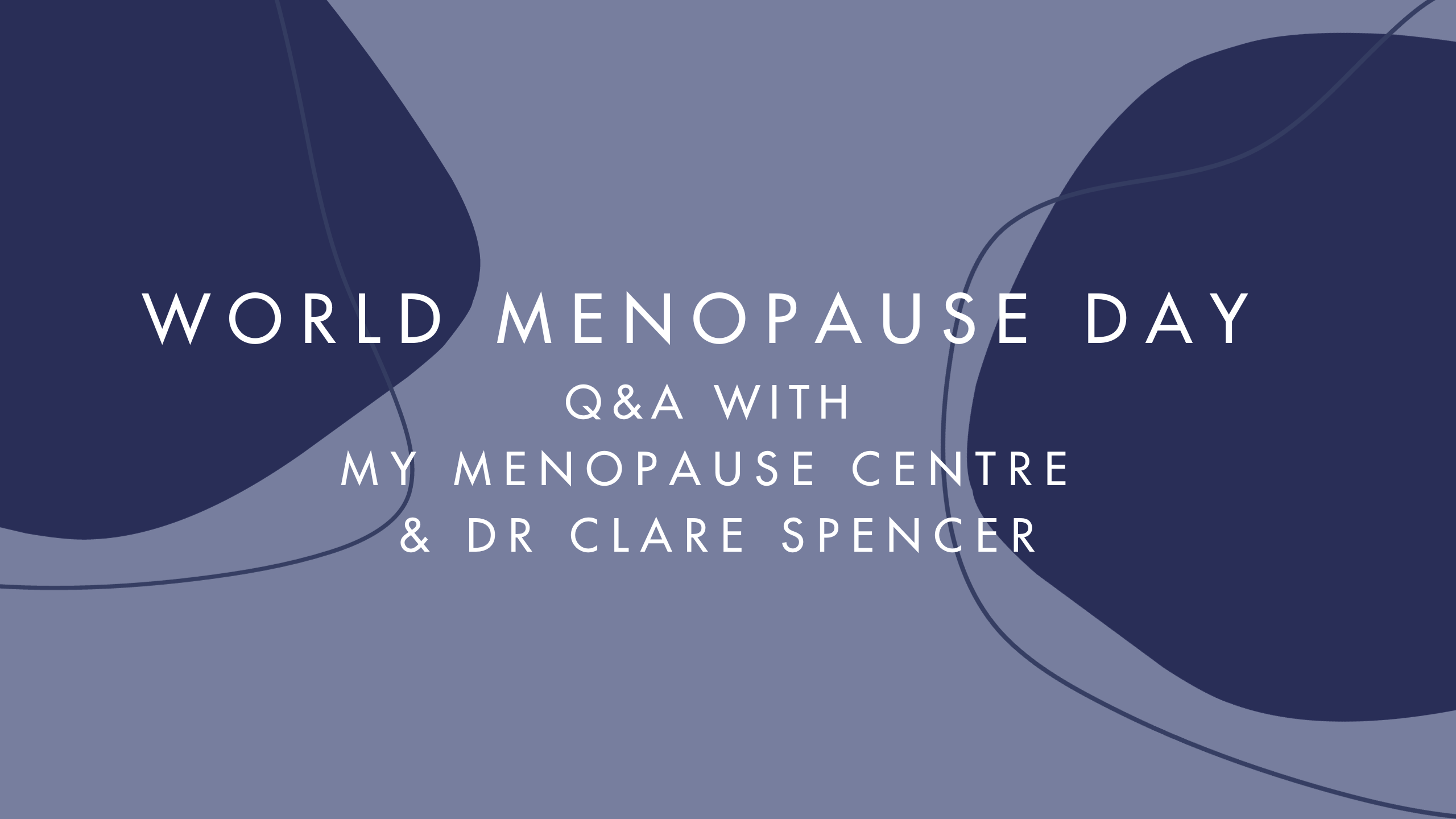A Q&A With Dr Clare Spencer From My Menopause Centre
Alongside Christina Salcedas, our Global Director of Education, we have invited Dr Clare Spencer from My Menopause Centre for a conversation to learn what the menopause is, symptoms and treatment options available for those experiencing menopause.

My Menopause Centre was co-founded by Dr Clare Spencer and Helen Normoyle. My Menopause Centre’s private online menopause clinic is the only menopause clinic in the UK to be rated ‘outstanding’ by the CQC. Dr Spencer and her team of expert menopause doctors provide a holistic, evidence-based, and personalised approach to menopause care via video or telephone appointments.
My Menopause Centre’s purpose-led website also offers a wealth of free, evidence-based information and advice on all stages of the menopause transition, forty symptoms of the menopause and a questionnaire that results in a free, personalised menopause assessment while it’s pause. community offers a space for women to come together and share stories about their menopause experience, ask questions at one of their free events, and find support and inspiration as well as receive the latest news and updates on the menopause from its experts. The website also has a dedicated area with menopause resources for GPs and their patients.
Answering their most asked questions:
What is Menopause?

The menopause occurs when your ovaries permanently stop producing eggs. Your oestrogen levels are now always low, and your FSH levels are permanently high. If you have a blood test to see if you’ve reached menopause, your doctor will check the FSH and, sometimes, oestrogen levels. Perimenopause, which marks the time when our fertility starts to decline, typically kicks in in a woman’s mid-40s, but can be as late as mid-50s (it’s different for every woman) and here you can see the more erratic rise and fall of these 2 hormones, and this is what causes all of the symptoms women experience in the perimenopause. Menopause itself occurs 12 months after your last period, and lasts a day, and then you are postmenopausal for the rest of your life!
How does menopause impact women?

But despite this, BMS research shows that around one third do not seek medical attention or advice. That can be for a variety of reasons, for example their belief that …
- Their symptoms are not bad enough and they just need to put up with them
- Nothing can be done to help control their symptoms,
- Reluctance to use hormone based therapies (concerned about breast cancer in particular) and assume there are no other alternatives
- Or there is some embarrassment to talk about some symptoms, urinary, vaginal or sexual ones
There are personal, social and economic consequences of the symptoms of the menopause.
What are the main symptoms of menopause?

- 8 in 10 of women will experience symptoms, and these usually last 4-8 years but can last for a lot longer.
- Psychological symptoms are often the most surprising for women as most are more aware of physical symptoms.
- Key finding was the impact menopause can have on mental health, confidence and self-worth.
- Women relieved to know it’s their hormones and there’s something they can do about it, it will pass and they are not going mad or experiencing early onset dementia, things I often hear from my patients
If you would like to listed to our whole Q&A head over to your YouTube channel and watch the whole video here.










